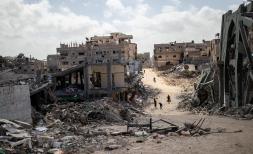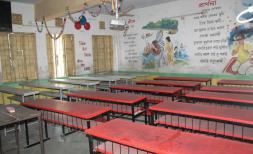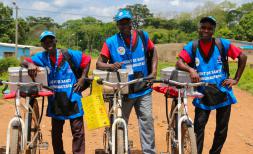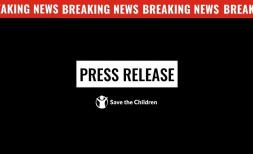Greece: Future of over 20,000 refugee children up in the air because of government neglect
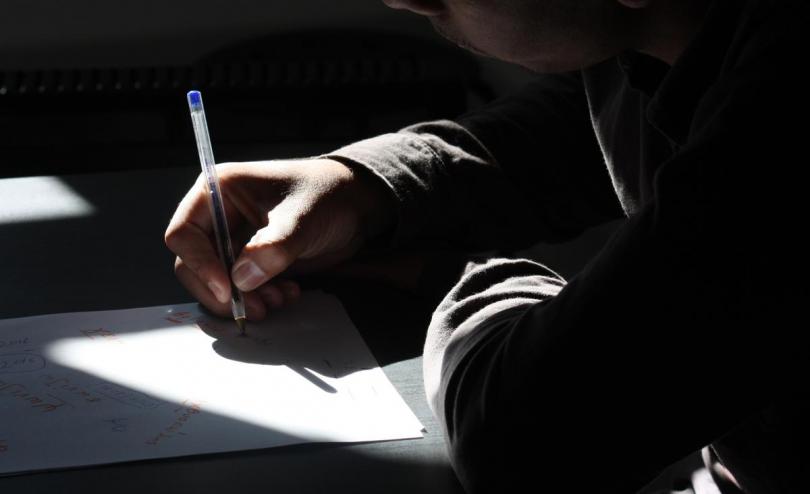
Covid-19 restrictions further excluded refugees and migrants from education.
Greece is effectively excluding refugee and asylum-seeking children from school and is denying their right to an education, Save the Children and the Greek Council for Refugees (GCR) said today.
The two organisations called for urgent action by the Greek government and the European Union to address the shockingly low numbers of refugee children attending school. Lack of sufficient staffing, absence of transport arrangements, and community hostility have been compounded by the impact of Covid-19, creating the perfect storm ahead of the new school year.
Greece has received millions of euros in education funding and recently committed to providing learning opportunities to over 20,000 school-aged children on its territories.[i] However, according to a new report by Save the Children and the GCR, less than 15%of children in refugee camps attended formal school.[ii] In the notorious Reception and Identification Centres (RICs), the attendance rate drops to 0.3%, with only seven children out of 2,900 attending class.
While the education crisis on the Greek islands is particularly acute, refugee children in the mainland of Greece also face dire prospects of receiving a quality education.
Education actors say children from Afghanistan and Iraq had the lowest level of education, with more than a third of those never having been to school.[iii]
Hani*, nine years old from Syria, who lives in the Mavrovouni camp in Lesvos with his parents and four younger brothers, told Save the Children “I do not go to school in the camp, which is bad. There are none. It [the camp] has nothing...It is dirty and every day there are problems.”
Measures to contain the spread of Covid-19, particularly restrictions on movement from camps, has exacerbated the situation for asylum-seeking children. When schools were closed or offered distance learning only, children in refugee accommodation sites and RICs were effectively excluded entirely. Wi-fi or other internet access in the camps is inadequate and students lack equipment such as tablets, laptops, or even smartphones.
Issues such as lack of staff, scheduling of reception classes and lack of transport to school remain largely unresolved. This is despite the fact that Greece has the second-highest teacher to primary pupil ratio in the EU, with only 9.2 pupils for each teacher.
Daniel Gorevan, Senior Advocacy Advisor for Save the Children, said:
“Greece has a chronic problem when it comes to sending refugee children to school. Even before Covid-19, less than a third of refugee and migrant children were actually enrolled and attending school. The current Greek government does not even keep a tally, so the depth of the crisis remains hidden and deprioritised.”
Vassiliki Katrivanou, Social Unit Coordinator for the Greek Council for Refugees said:
“Greece has clear obligations and access to resources to ensure all children in Greece can go to school. The fact that so many are not learning is a deliberate choice to ignore the needs and rights of those children. With the start of the new school year upon us, we urge the Greek government to honour its commitments and secure the future of these vulnerable children.”
Save the Children and the GCR are calling on the Greek government to issue clear instructions to all service providers, including Regional Directorates, Directorates of Education, and school management, outlining their obligation to enrol and facilitate school attendance of all children living in Greece, regardless of their legal status. They also call on the EU to monitor the prompt enrolment of refugee, migrant and asylum-seeking children in the Greek education system.
Notes to editors:
- Both Greek and EU law requires that children who arrive in Greece should be enrolled in the formal education system within three months of arriving in the country. The EU has spent millions of euros to support Greece since 2015 with the increase in refugee arrivals and provides significant support to the national education budget.
- For further information, see the report “Back to School? Refugee children in Greece denied right to education”
- Figures on enrolment and attendance are drawn from Greek Ombudsperson’s report (in Greek) and official government statistics.
- Figures on Greece’s primary teacher to pupil ratio are available here
*Name changed to protect the identity
[i] In 2020 alone, more than €816 million were allocated by the EU to support Greece’s national education budget, including €7.5 million for refugee children’s education. See Greece: Stop Denying Refugee Children an Education, Human Rights Watch, 29. July 2021 https://www.hrw.org/news/2021/07/29/greece-stop-denying-refugee-children-education
[ii] The total number of children of school age residing in refugee camps was found to be 10,431, with only 1,483 of them were attending school
[iii] https://s3.amazonaws.com/theirworld-site-resources/FINAL-RefugeeEducation-Report-050520-1.pdf
For any questions or to request media interviews please contact:
- Emily Wight, Emily.Wight@savethechildren.org;
- Ahmed Bayram, Ahmed.Bayram@savethechildren.org;
- Out of hours (BST), media@savethechildren.org.uk / +44 (0)7831 650409
